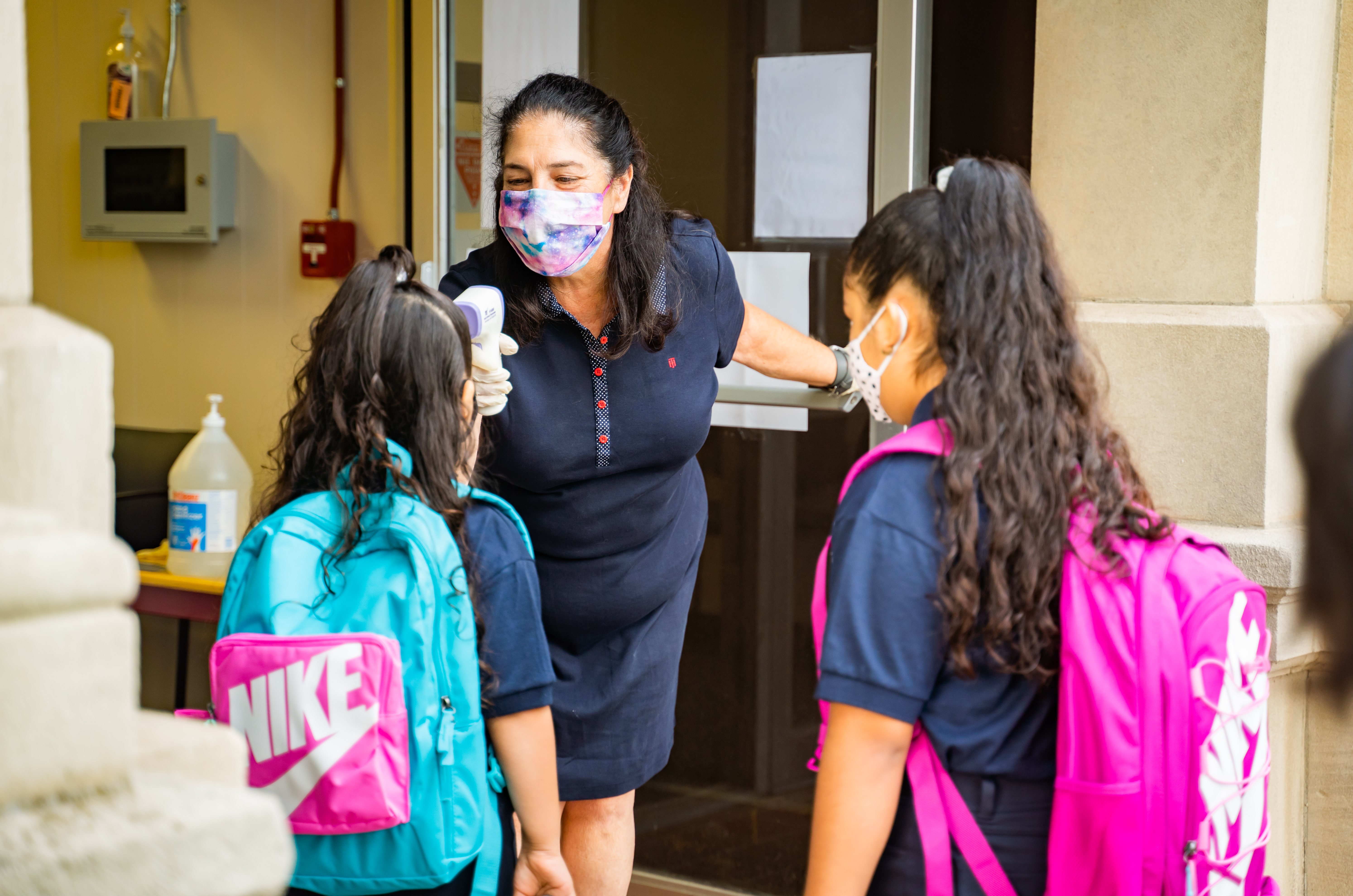Children need interaction with peers, a place to develop outside the home, provided it can be done safely, school counselors say
NORTHVILLE — For all the advances in distance-learning technology and Zoom meetings, nothing replaces a child’s interaction with another child.
Seeing one’s best friend at lunch, chatting with peers in the hallway, going outside for recess — there is much social and emotional development happening at school that takes place outside the classroom.
School counselors at Catholic schools in the Archdiocese of Detroit recognize this. And while they stress that the health and safety of students is paramount, there are undeniable benefits to in-person learning when it comes to students’ emotional and spiritual wellbeing.
“We’re not saying we need to be in the classroom all the time, no matter what, but there is something about having students together, a social and emotional peace that is filled,” said Nadine Langley, school counselor for Our Lady of Victory School in Northville. “Kids still need to be kids, just now from a distance.”

Langley and her counselor colleagues worked with students remotely via Zoom in the spring, working with students through the emotional and mental challenges of the COVID-19 crisis.
As classes return this fall, Langley said, students are aware of the need to practice social distancing, but also are thrilled to see their friends.
“Kids need to be around each other,” Langley said. “I have an only child, so it’s her and I at home. She needs social interaction as a teenager, to be around kids. That is where they find their own identity. It’s hard to do that when you’re around your parents all day.”
Students might be returning to in-person instruction, but COVID-19 isn’t going away.
Schools are taking precautions to limit the spread of germs, but counselors are encouraging school leaders to still give the opportunity for kids to be kids at school.
As schools take precautions to limit the spread of COVID-19, counselors are encouraging administrators to leave space — both figuratively and literally — for students to interact on a social level.

“How do we get children to move their bodies, get them to breath and just relax?” said Mary Jo Ciani-Gaddie, a counselor for Holy Name School in Birmingham and Shrine Catholic School in Royal Oak. “This school year will look different. Students won’t be with all their friends in a lunchroom or at recess.”
Ciani-Gaddie has worked with teachers on mindfulness exercises to share with students to reduce stress and promote healthy activity.
“Anxiety is everywhere, and we don’t know what our students have experienced in the last five months; we haven’t had eyes on them in a long time,” Ciani-Gaddie said. “I’ve told teachers this school year will be like jumping into a cold lake. It will be hard to get used to. Things will be different, but it will be OK.”
Beyond activity in school, counselors will need to work with students in addressing the very real threat of COVID-19, such as what happens if a student becomes infected and how to deal with the extra stresses of discussing a pandemic that’s become politically divisive.
“Some students are scared, some are not, and some are in the middle,” Langley said. “We need to respect each other and be kind. I’ve been telling kids to embrace what will be different. Seats will be in a line instead of a cluster, some students will have different kinds of masks, some students won’t be back immediately, and that’s OK.”

Going to school during a global pandemic means students are living through history, Langley said, and they’re aware of it.
“Of course, how we talk to students is different between kindergarten and eighth grade,” Langley said. “I love having real conversations with middle schoolers who have real questions, and then going to kindergarten and saying it’s OK to be scared, but everything will be OK if we do our part.”
Langley’s own daughter will return to school this fall at Mercy High School in Farmington Hills. While sending children back is an intensely personal family decision, Langley said most parents see the benefits of in-person education.
“Parents see that their children need to be in school,” Langley said. “Parents work, they have more than one child, and they can’t provide that solid routine. Kids are different when they are not around their parents; school gives them that routine they need to learn how to cope in the world.”










